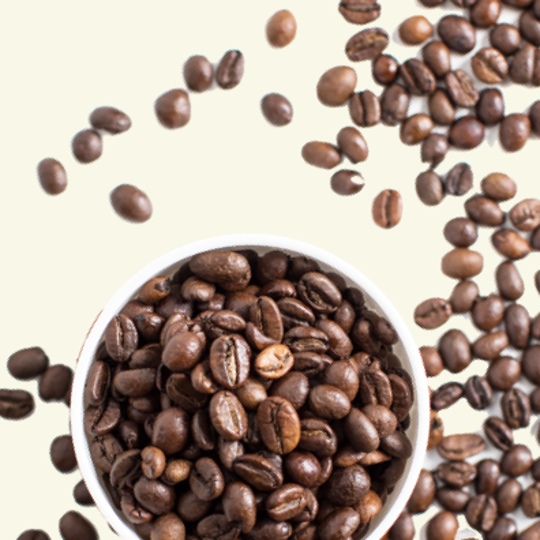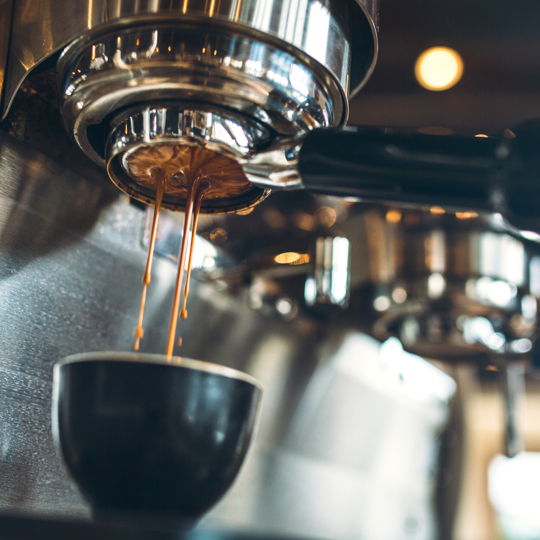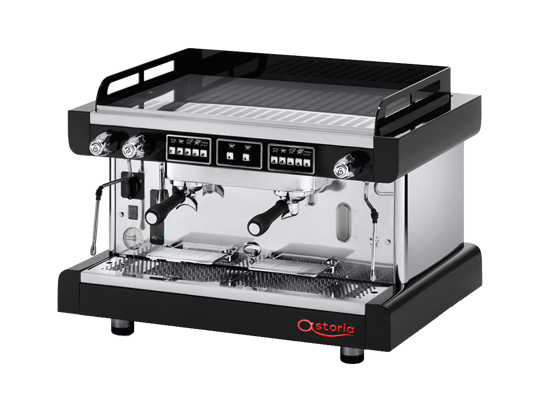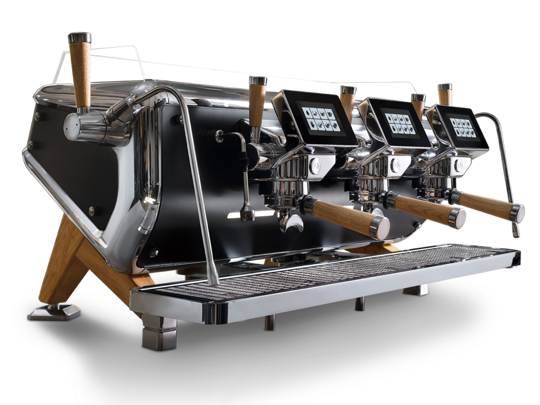
Grand Cru Espresso Beans
This is our 100% Arabica espresso coffee blend. It has the best Kenyan AA Grade beans for acidity, citrus notes and a chocolate after taste.
View
Find out about how to choose an espresso machine.
View Our Espresso MachinesWhen purchasing their first serious espresso machine, people usually choose either a semi automatic or automatic model. Find out everything you need to know before buying a traditional espresso machine.
To clear up some confusion that may exist over nomenclature used by consumers, vendors, and advertisers we have written our guide to choosing an espresso machine.
These feature an automated pump, automated temperature controls for the boiler, and activation switches to engage and disengage the pump. That's what makes it "semi-automatic" - you decide when to turn the pump on and off.
These feature a pump, automated temperature controls for the boiler, and automated (and frequently programmable) preset water volumes selected by pressing a button. That's what makes it "automatic".

Cafetières remain the most elegant and profitable way to serve coffee in the Restaurant and in lounge service.
Their elegance alone presents a premium pricing opportunity and unlike the "endless cup" of filter coffee, every single drop is paid for. Whether it be the traditional glass and chrome cafetière where customers and waiting staff can see the contents of the cafetière, or the latest "double thickness" stainless steel thermal cafetières, trained Café du Monde staff will be able to recommend the right size and number "to do the job" and also how to make and serve the coffee and look after the cafetières.
Glass and Chrome - The original and classic cafetière design.
Stainless Steel - A contemporary method of presenting coffee. Available in Satin and Mirror finish.

There are actually many subclasses of machines in the semi automatic and automatic machine categories, but really, only three major ones.
This is by far the most common type under £1,000. This type of machine has one boiler and two thermostats (or more) inside. One thermostat controls the water temperature for brewing coffee. The other thermostat is set at a higher temperature, to produce steam for steaming milk. The machine transitions from one thermostat to the other when you flip a switch or press a button. These machines cannot brew and steam at the same time.
These machines are more common above the £1,000 price point. A big boiler maintains water at around 115C or higher, ideal for producing steam. Brewing water makes its way to the grouphead through a coiled tube inside the boiler. As it is drawn from the reservoir, through the coiled tube, it flash heats up to (hypothetically) ideal brewing temperatures. The coiled tube is the heat exchanger. You can steam and brew at the same time on these machines.
Feature two independent boilers (or a boiler and a thermoblock), one that maintains water at brewing temperatures, one that maintains water at steaming temperatures. You can steam and brew at the same time on these machines.
Semi automatics are available in all the three subclasses listed above, and as mentioned at the top of this page, automate a lot of things for you while still giving you ultimate control over how your shot of espresso will progress.
Because you decide when to activate the pump and when to turn it off, you control the total water flow for every shot you make. Why is this important? There may be cases where you build a shot and notice it's pouring very slowly but looking very good. With an automatic machine, the machine decides when to end your shot - and it may end the shot too soon. On the semi auto, you can just let the pump run longer before you hit the switch to stop things.
Automatics are called so because they automate the delivery of water for you. You press a button and the machine delivers a predetermined volume of water, more or less the same amount every time. (If you grind finer or pack more coffee into the basket, the overall extraction will be less.) So you load up your filterpan with coffee, tamp it, lock it into your machine, press a button, and for all purposes, you can walk away at this point. The machine will stop brewing once its internal voltmeter hits the preprogrammed amount.
These machines typically feature four brewing buttons or switches: one shot short, two shots short, one shot normal (long), two shots normal (long). A fifth button, usually found to the right of the four preprogrammed switches, is the aforementioned "on till you press me again to turn off" semi-auto button.
On most of these machines (though not all), you can program in any volume you want for each of the brewing buttons. If you want, you can set the far left button (usually single shot short) to push 10 ounces through the coffee if that's your desire.

This is our 100% Arabica espresso coffee blend. It has the best Kenyan AA Grade beans for acidity, citrus notes and a chocolate after taste.
View
Nutty-chocolate aromas, a hint of fruit, balanced acidity, and a smooth, full-bodied finish. Robust yet refined, this is coffee that speaks many languages—and all of them delicious.
View
A bold and full-bodied blend crafted for espresso lovers who crave depth, intensity, and crema-rich perfection.
View
A high-quality bean blend, composed of Arabica beans from Central and South America and spicy, high-quality Robusta beans from Africa and Indonesia.
View


